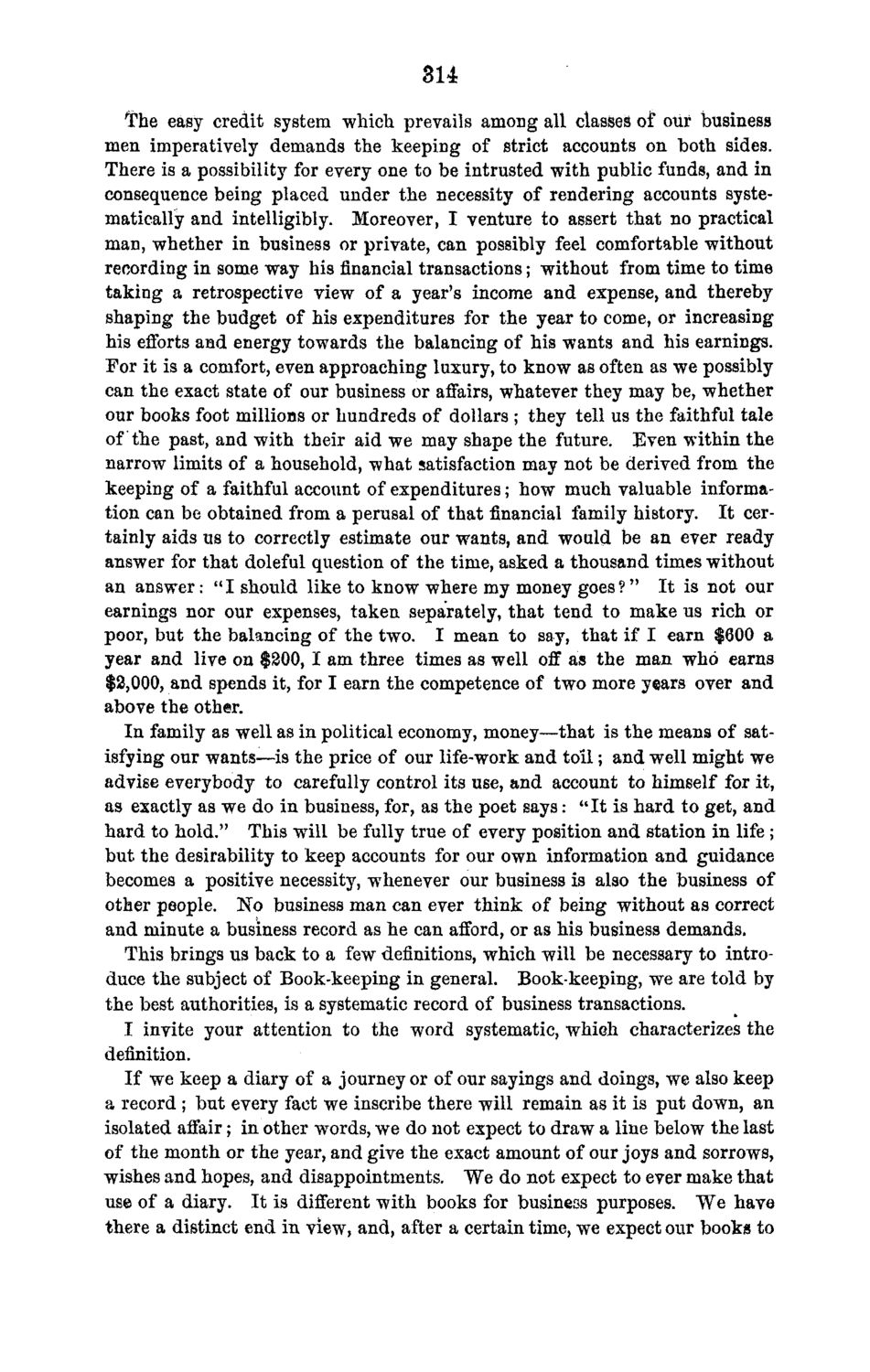| |
| |
Caption: Board of Trustees Minutes - 1870
This is a reduced-resolution page image for fast online browsing.

EXTRACTED TEXT FROM PAGE:
811 'The easy credit system which prevails among all classes of our business men imperatively demands the keeping of strict accounts on both sides. There is a possibility for every one to be intrusted with public funds, and in consequence being placed under the necessity of rendering accounts systematically and intelligibly. Moreover, I venture to assert that no practical man, whether in business or private, can possibly feel comfortable without recording in some way his financial transactions; without from time to time taking a retrospective view of a year's income and expense, and thereby shaping the budget of his expenditures for the year to come, or increasing his efforts and energy towards the balancing of his wants and his earnings. For it is a comfort, even approaching luxury, to know as often as we possibly can the exact state of our business or affairs, whatever they may be, whether our books foot millions or hundreds of dollars ; they tell us the faithful tale of the past, and with their aid we may shape the future. Even within the narrow limits of a household, what satisfaction may not be derived from the keeping of a faithful account of expenditures; how much valuable information can be obtained from a perusal of that financial family history. It certainly aids us to correctly estimate our wants, and would be an ever ready answer for that doleful question of the time, asked a thousand times without an answer: " I should like to know where my money goes?" It is not our earnings nor our expenses, taken separately, that tend to make us rich or poor, but the balancing of the two. I mean to say, that if I earn $600 a year and live on $200, I am three times as well off as the man who earns $2,000, and spends it, for I earn the competence of two more years over and above the other. In family as well as in political economy, money—that is the means of satisfying our wants—is the price of our life-work and toll; and well might we advise everybody to carefully control its use, and account to himself for it, as exactly as we do in business, for, as the poet says: "It is hard to get, and hard to hold." This will be fully true of every position and station in life; but the desirability to keep accounts for our own information and guidance becomes a positive necessity, whenever our business is also the business of other people. No business man can ever think of being without as correct and minute a business record as he can afford, or as his business demands. This brings us back to a few definitions, which will be necessary to introduce the subject of Book-keeping in general. Book-keeping, we are told by the best authorities, is a systematic record of business transactions. I invite your attention to the word systematic, which characterizes the definition. If we keep a diary of a journey or of our sayings and doings, we also keep a record ; but every fact we inscribe there will remain as it is put down, an isolated affair; in other words, we do not expect to draw a line below the last of the month or the year, and give the exact amount of our joys and sorrows, wishes and hopes, and disappointments. We do not expect to ever make that use of a diary. It is different with books for business purposes. We have there a distinct end in view, and, after a certain time, we expect our books to
| |